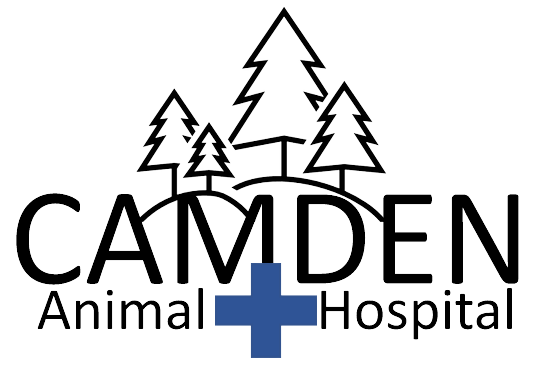Dental health is often an overlooked aspect of pet care, yet it is crucial for your furry friend’s overall well-being. Just like humans, pets can suffer from a range of dental problems that, if left untreated, can lead to significant health issues. Regular dental care is essential to preventing pain, discomfort, and serious complications.
The Silent Threat: Understanding Pet Dental Disease
Pet dental disease is a progressive condition that starts with plaque buildup on the teeth. This plaque hardens into tartar, which irritates the gums and creates a breeding ground for bacteria. Over time, this inflammation can lead to gum disease, tooth loss, and even systemic infections.
- Periodontal Disease: This is the most common dental problem in pets, characterized by inflammation of the gums, tooth loss, and potential bone loss. It starts as gingivitis, an inflammation of the gums, and can progress to periodontitis, which involves deeper tissue and bone destruction. Early signs include bad breath, red or swollen gums, and plaque buildup. Advanced stages may lead to tooth mobility, pain, and even tooth loss.
- Stomatitis: This painful condition causes inflammation of the oral cavity, including the gums, tongue, and roof of the mouth. Symptoms include excessive drooling, difficulty eating, bad breath, and lethargy. Stomatitis can be caused by various factors, including bacterial infections, immune system disorders, and allergies.
- Tooth Resorption: This condition affects the structure of the tooth, causing it to weaken and break. It is often seen in cats and involves the gradual disappearance of tooth enamel and dentin. Symptoms include sensitivity, pain, and potential tooth fractures.
- Oral Tumors: While less common, oral tumors can develop in the mouth and can be cancerous. Common types include melanomas, squamous cell carcinomas, and fibrosarcomas. Symptoms may include persistent mouth sores, difficulty chewing, bleeding from the mouth, and changes in appetite.
Preventive Dental Care: Safeguarding Your Pet’s Smile
A proactive approach to dental care is essential for maintaining your pet’s oral health. Here are some key preventive measures:
- Daily Brushing: Brushing your pet’s teeth regularly with a pet-specific toothpaste is the cornerstone of dental care. It helps remove plaque and prevent tartar buildup.
- Dental Chews and Treats: Veterinary-approved dental chews and treats can help reduce plaque and tartar, but they should not replace brushing.
- Regular Veterinary Check-ups: Annual dental exams allow your veterinarian to assess your pet’s oral health, identify potential problems early, and recommend appropriate treatments.
- Professional Cleanings: Regular dental cleanings under anesthesia are crucial for removing tartar and plaque buildup that cannot be reached with brushing.
Recognizing the Warning Signs of Dental Problems
Early detection is key to effective treatment. Be on the lookout for these common signs of dental issues:
- Bad Breath: Persistent bad breath is often a sign of underlying dental problems.
- Difficulty Eating: Painful teeth or gums can make it difficult for your pet to chew.
- Dropping Food: If your pet drops food while eating, it could indicate dental pain.
- Pawing at the Mouth: Excessive pawing at the mouth may be a sign of discomfort.
- Red or Swollen Gums: Inflammation of the gums is a common symptom of dental disease.
- Loose or Missing Teeth: These are advanced signs of dental problems and require immediate veterinary attention.
- Changes in Appetite or Behavior: Dental pain can lead to changes in your pet’s eating habits or behavior.
The Importance of Home Care: A Partnership for Dental Health
While professional dental care is essential, home care plays a vital role in maintaining your pet’s oral health between veterinary visits. Here are some tips for effective home care:
- Start Early: Begin brushing your pet’s teeth as early as possible to acclimate them to the process.
- Choose the Right Toothbrush and Toothpaste: Use a toothbrush specifically designed for pets and a toothpaste formulated for their taste.
- Be Patient and Gentle: Brushing should be a positive experience for your pet. Reward them with treats and praise.
- Regular Check-ups: Schedule regular dental exams to monitor your pet’s oral health and address any issues promptly.
Investing in your pet’s dental health is an investment in their overall well-being. By following these guidelines and working closely with your veterinarian, you can help your furry friend enjoy a healthy and happy life. Remember, a healthy smile is a happy pet!
Prioritize Your Pet’s Oral Health
A healthy smile is a vital part of your pet’s overall well-being. By understanding the importance of dental care and taking proactive steps to maintain your pet’s oral hygiene, you can help prevent painful and costly dental problems. Camden Animal Hospital in Camden, AR is committed to providing top-quality veterinary care, including comprehensive dental services. Our experienced team is dedicated to ensuring your pet’s oral health and comfort.
Schedule a dental checkup for your furry friend today. Early detection and prevention are key to maintaining a healthy smile for your beloved pet.


